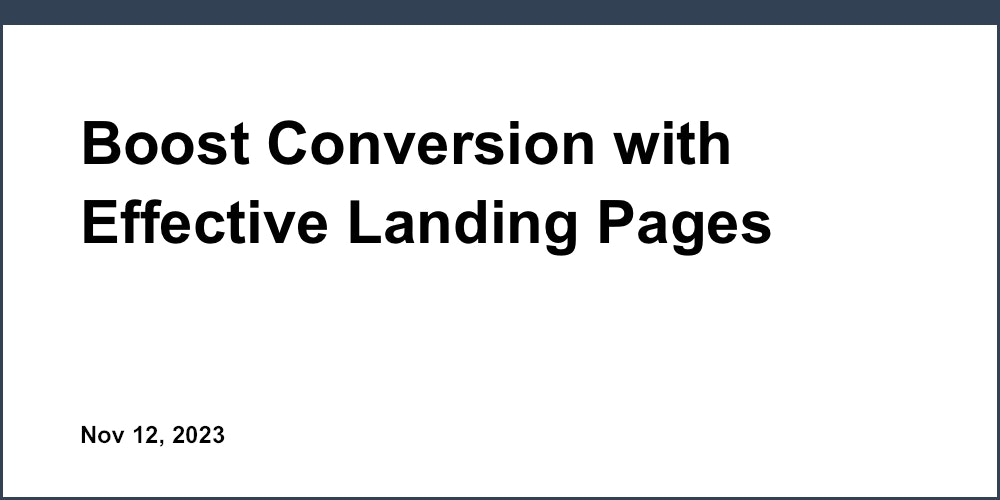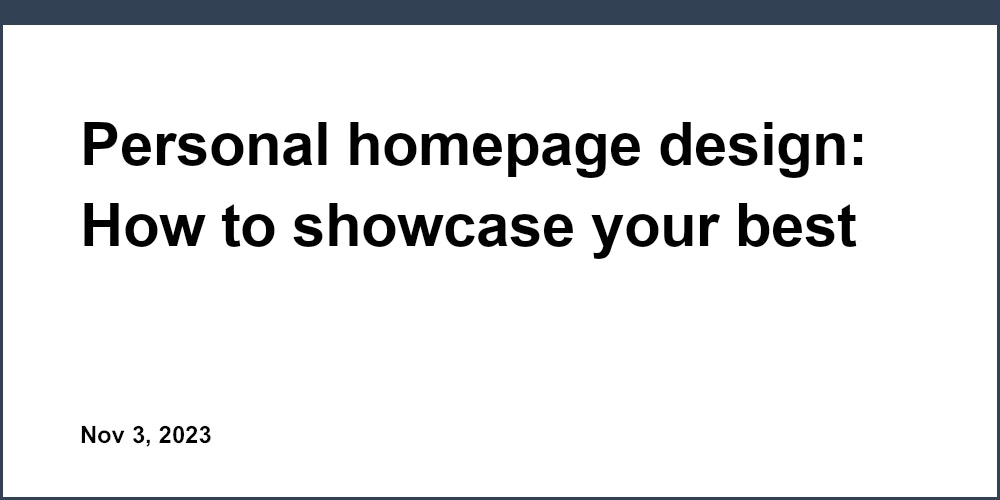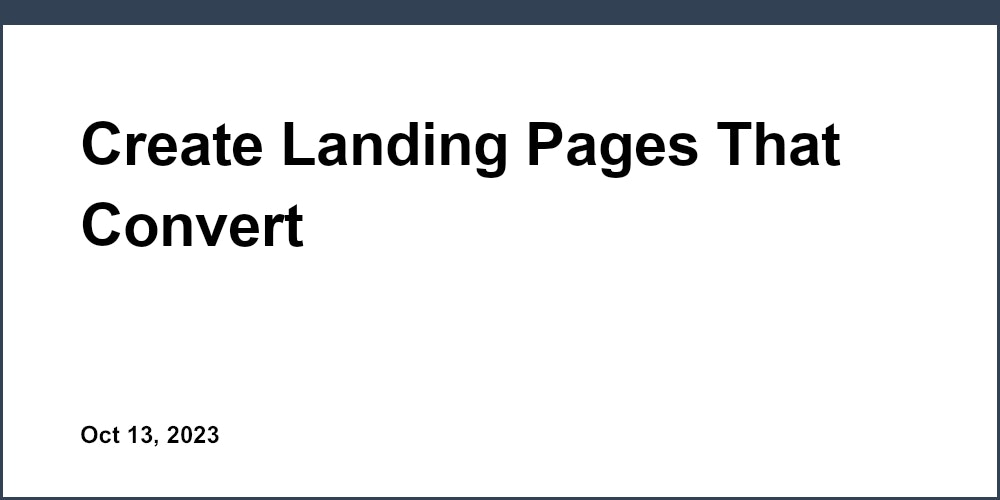Introduction
Responsive web design has become essential for startups and SaaS companies in today's multi-device world. With more and more traffic coming from mobile, having a website that automatically adapts and resizes for any screen size is critical for delivering great user experiences. However, coding and designing fully responsive sites requires substantial technical skills and effort. This leaves many startups and entrepreneurs struggling to make their landing pages mobile-friendly without dedicated web development resources.
The good news is that tools like Unicorn Platform now make building responsive landing pages quick, easy, and accessible even for non-coders. With its flexible website builder and AI-powered features tailored for startups, Unicorn enables anyone to create optimized and adaptive landing pages that look great on any device.
In this guide, we'll cover the key steps for startups and SaaS founders to build landing pages that dynamically resize for flawless mobile experiences. From choosing the right responsive theme and optimizing for mobile to designing across devices, we'll explore how Unicorn Platform empowers you to make responsive landing pages that drive results. Let's get started!
Choosing a Responsive Theme
Starting with the right responsive theme is the foundation for building a landing page optimized for all devices. When evaluating theme options, consider these tips:
-
Test drive themes using real representative content to accurately evaluate responsiveness. Creating basic test pages on Unicorn Platform can help properly assess themes.
-
Look for minimalist, uncluttered themes to allow greater flexibility in customization. Overdesigned themes often limit easy responsiveness.
-
Try both one-page and multi-page themes to determine which better fits your business needs.
-
Check out Unicorn Platform's diverse theme marketplace with a wide range of responsive designs to choose from.
One-Page vs. Multi-Page
One-page themes present all content together on a single scrolling page. These are great for succinctly showcasing a product, service, or campaign. Companies like Slack and Intercom use one-page designs effectively.
Multi-page themes have separate pages connected by navigation. They allow for more detailed content and complex site structures. Brands like Mailchimp and Dropbox leverage multi-page designs to organize expansive content.
Consider whether you need a simple one-pager or the expanded capabilities of a multi-page site. Testing both types on Unicorn Platform can reveal which resonates most with your brand.
Demoing Themes
Previewing themes using demo content is crucial. Unicorn Platform makes exploring theme demos simple - just click to view any theme with pre-loaded sample content.
For the most accurate responsive experience, try adding some of your own images, text, and content before judging a theme. Demo images alone rarely tell the full story. Creating basic test pages on Unicorn Platform can help you properly evaluate themes.
Finding the Right Fit
Aim for a theme that balances visual appeal with adaptability. Avoid over-designed themes that hinder easy responsiveness. Unicorn's minimalist themes let you customize extensively while enabling seamless scaling.
Identify must-have features like layouts, menus, and components that fit your site needs before theme hunting. Services like Unicorn's Theme Finder match your preferences to recommend ideal themes.
Optimizing for Mobile
With mobile traffic rising, optimizing landing pages for mobile is mandatory. Responsive design inherently makes sites mobile-friendly by auto-adapting screen layouts. But you can further enhance the mobile experience through:
-
Auditing pages on real mobile devices during development.
-
Prioritizing minimalism and clarity on mobile with simplified content focused above the fold.
-
Using Unicorn Platform's mobile previewer to optimize as you build.
Simplifying Navigation
Complex nav menus overwhelm and break on mobile. Streamline navigation to highlight only your core pages. Responsive menu components from Unicorn's component library make mobile navigation easy.
Minimize submenus and drop-downs. Avoid overstuffing mobile navs as users focus on primary pages.
Touch Optimization
Optimize buttons and taps targets for fingertips by ensuring sufficient spacing between elements for easy tapping on touchscreens.
Uncluttered, simplified layouts improve usability. Focus critical content above the fold as mobile users tend to scroll less.
Page Speed
Fast page load speeds are crucial for mobile users. Enable compression, defer non-critical JS, and optimize images to keep file sizes small.
CDNs like Unicorn's cache resources globally so pages load ultra-fast on mobile. Minimalist, low-feature page designs also boost mobile speed.
Designing for All Device Sizes
Responsive design means creating an optimal layout then adapting it to fit everything from small phones to large desktops.
Using responsive frameworks like Unicorn Platform enables automatic resizing across devices. Strategically employ white space to guide the eye as screen sizes change.
Unicorn's device simulator lets you instantly preview your site across various viewports as you build.
Adapting Layouts
Elements and columns nimbly resize and restack as space contracts or expands. Multi-column grids on desktop can condense into single-column mobile layouts.
Flexible containers and grids keep content adapting smoothly. Show/hide elements or components to optimize each viewport size.
Strategic Use of Images
Employ properly sized images for each device. Serve smaller files to mobile and larger ones to desktop. Image CDNs like Unicorn's auto-optimize images for every screen.
Add some different visuals tailored to desktop vs. mobile users. Vector images work great for resolution independence.
Testing Across Devices
Test on both emulators and real devices in multiple viewport sizes. Get feedback from users across phones, tablets, laptops, and desktops.
Responsive design is an iterative process. Use Unicorn's device simulator to keep evaluating and refining as you build.
Bringing It All Together
Responsive design may seem daunting but modern tools like Unicorn Platform make it completely approachable for startups and entrepreneurs.
Follow these tips to build landing pages that effortlessly adapt for flawless mobile experiences. Optimize for all devices with a responsive strategy.
With its flexible website builder and pre-made responsive themes, Unicorn lets you quickly launch landing pages optimized for any screen. Perfectly responsive landing pages are now within easy reach!



